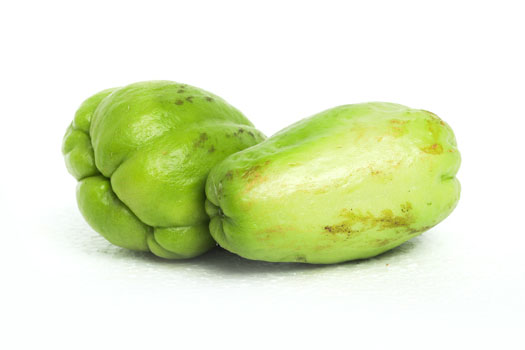Nutritional information
One whole chayote squash has the following nutrients (approx. 200 gm) :
Calories: 39 Carbohydrates: 9 grams
2-gram protein
0 gram of fat
Fiber: 4 g — 14% of RDA (RDI)
26 percent of the RDI for vitamin C
Vitamin B9 (folate): 47% of the RDI
10% of the RDI for vitamin K
8% of the RDI for vitamin B6
Manganese accounts for 19% of the RDI.
Copper accounts for 12% of the RDI.
10% of the RDI for zinc
Potassium: 7.5% of the RDI
Magnesium: 6 percent of RDI
Many of the advantages of chayote can be linked to its antioxidant concentration. The antioxidants quercetin, myricetin, morin, and kaempferol are found in chayote squash. Myricetin has the greatest concentration of these. According to research, myricetin has potent anticancer, anti-diabetic, and anti-inflammatory effects. Furthermore, chayote squash is high in vitamin C, which acts as an antioxidant in the body. Chayote squash has a variety of antioxidants, including vitamin C and myricetin, which help to fight disease and improve health. Eating chayote squash may help with numerous risk factors for heart disease, including high blood pressure, high cholesterol, and poor blood flow.
Storage method
The best way to store chow chow or chayote is by pickling them. However, the best alternative method to store chow chow is keeping them in a freezer-safe sealed container in the freezer. Once thawed you should use them inside the first two weeks. If you have refrigerated your chayote for a long, peel off a few first layers before use.














